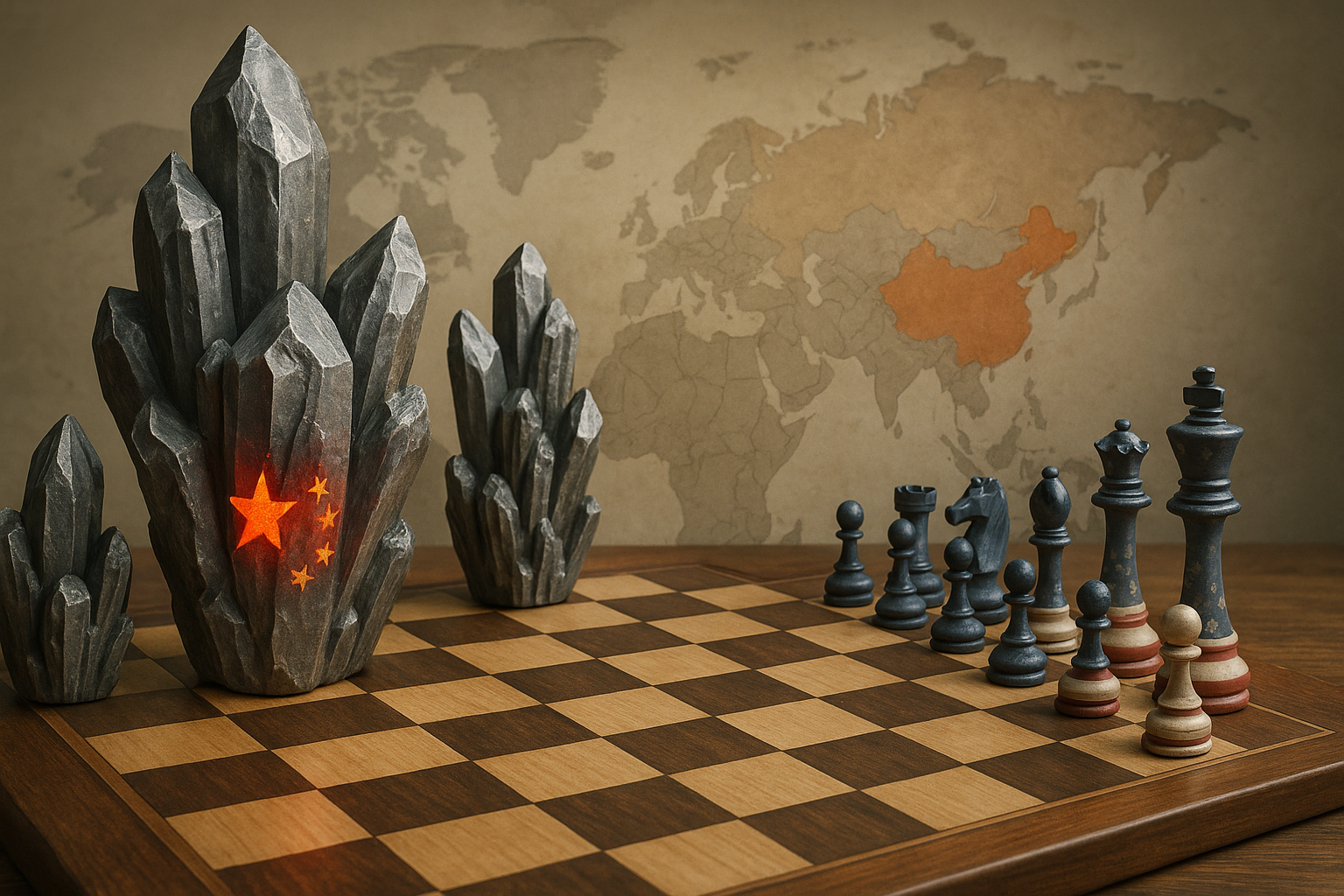The geopolitical chess match over rare earth elements has taken an ominous turn. And nobody—least of all the campaign strategists in Trump's orbit—seems to be talking about what really matters here.
I've covered resource politics for years, and this situation has all the warning signs of a slow-motion crisis that suddenly accelerates.
Here's the uncomfortable truth: China controls roughly 70% of global rare earth reserves and a staggering 90% of refining capacity. These aren't random statistics—they're the foundation of modern technological society. Your smartphone, electric vehicles, wind turbines, military equipment... all utterly dependent on materials that one country effectively controls.
And now Beijing appears to be flexing its muscles.
The backstory contains a painful irony that policy veterans still grimace about when I bring it up in interviews. Western economies—always hunting for cost savings and convenient solutions to messy environmental problems—practically gift-wrapped the rare earth industry and handed it to China decades ago. The processing is nasty stuff. Toxic. Expensive. The kind of industrial activity that makes for terrible campaign commercials.
So we shipped it overseas. Problem solved! Or so we thought.
China, demonstrating the patient strategic thinking that's become its hallmark, quietly built dominance in a sector most Americans couldn't identify if you paid them to. Yet it powers virtually everything we consider essential to modern life and national security.
Trump's Tariff Problem
The former president's campaign threats about slapping 100% tariffs on Chinese imports make for potent rally fodder. His base eats it up. But there's a glaring problem that nobody on the campaign trail wants to acknowledge.
How do you strong-arm a country that controls materials you literally cannot function without?
Look, I'm not exaggerating here. Without rare earths, we don't have defense systems. We don't have data centers. We don't have the technological backbone that makes America... America. This isn't like threatening to cut off soybeans or clothing imports.
"The leverage asymmetry is profound," explained Dr. Victoria Ramirez, a resources security expert I spoke with last week. "China can absorb significant economic pain from trade restrictions. Their political system isn't designed to be responsive to consumer complaints about price increases. Ours absolutely is."
The Europeans are getting a taste of this medicine already. French defense contractors are scrambling to find germanium for military infrared systems. This isn't theoretical—it's happening right now.
The Math Doesn't Work
Here's where things get really sobering. Even if America went all-in on domestic rare earth production tomorrow (and that's a massive "if" given the environmental permitting gauntlet any such project would face), we'd still be years—possibly a decade—away from meaningful production.
Meanwhile, demand for these materials is expected to increase sixfold by 2030. Sixfold! And what's driving that growth? All the industries America considers central to its economic future—artificial intelligence, cloud computing, green energy.
The situation reminds me of that old saying about owing the bank a thousand dollars versus owing them a million. When you owe a thousand, it's your problem. When you owe a million, it's the bank's problem.
Except in this case, we don't even have the leverage of a debtor. We're just... dependent.
(A quick aside: I visited a rare earth processing facility in Malaysia once. The environmental controls were impressive, but the process itself is inherently messy. There's a reason these operations aren't popular in suburban America.)
The Negotiation Reality
Trump built his reputation on "The Art of the Deal." But deal-making assumes both parties need something from each other in roughly equal measure.
That's... not the case here.
You simply cannot simultaneously build a technological containment strategy against a country while depending on that same country for the raw materials that make the strategy possible. That's not politics—it's just math.
Something has to give. Either America develops alternative supply chains (expensive, time-consuming, technically challenging) or our tech confrontation strategy gets modified.
There isn't a magical third option where we get everything we want without compromise or investment. Trust me, I've asked every expert in my Rolodex. They all say the same thing.
The markets haven't fully priced this in yet. Most investors still view rare earth elements as an obscure commodity concern rather than a strategic vulnerability at the heart of our highest-growth industries. That'll change, probably suddenly and uncomfortably.
I don't think China will actually pull the trigger on comprehensive rare earth restrictions. That would accelerate the very supply diversification they'd prefer to prevent. But the threat alone gives them significant leverage in any future trade negotiations.
In this high-stakes chess match, China has been placing pieces strategically for decades while we've been... what, exactly? Playing checkers?
The real question isn't whether Trump (or any president) will make a deal with China. It's what concessions that deal will ultimately contain—and whether Americans are prepared for the answers.
